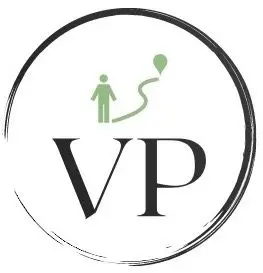For years I’ve tried to average one book a week each year. Most years, I’ve met my goal, but in 2019 my goal wasn’t met due to reading scripture more than reading numerous books. Even still, below is my completed reading list for 2019 with additional thought on selected works, authors, and other themes. I hope you find something from this list or my thoughts beneficial.
- Batman: The Dark Knight Strikes Again, by Frank Miller
- Real Artists Don’t Starve: Timeless Strategies for Thriving in a New Creative Age, by Jeff Goins
- Batman: The Long Halloween, by Jeph Loeb
- How Does Sanctification Work?, by David Powlison
- The Secret of Spiritual Strength, by Andrew Murray
- Irresistible: Reclaiming the New that Jesus Unleashed for the World, by Andy Stanley
- Deep and Wide: Creating Churches Unchurched People Love to Attend, by Andy Stanley
- David and Goliath, by Malcolm Gladwell
- Preaching: Communicating Faith in an Age of Skepticism, by Tim Keller
- Communicating for a Change: Seven Keys to Irresistible Communication, by Andy Stanley
- The Fabulous Showman: The Life and Times of PT Barnum, by Irving Wallace
- Outliers: The Story of Success, by Malcolm Gladwell
- Four Lenses Unfolded: A Deeper Understanding of Temperament Values, by Nathan K. Bryce
- Please Understand Me: Character & Temperament Types, by David Keirsey and Marilyn Bates
- The Spirit-Controlled Temperament, by Tim LaHaye
- Blink: The Power of Thinking Without Thinking, by Malcolm Gladwell
- What the Dog Saw: And Other Adventures, by Malcolm Gladwell
- The Wounded Healer: Ministry in Contemporary Society, by Henry Nouwen
- The Way of the Shepherd, by Kevin Leeman
- The Tipping Point: How Little Things Can Make a Big Difference, by Malcolm Gladwell
- Revelation For You: Seeing History From Heaven’s Perspective, by Tim Chester
- The Biblical Counseling Movement After Adams, by Health Lambert
- SUMMARY: The Subtle Art of Not Giving a F*ck, by Mark Manson
- Everything is F*cked A Book About Hope By Mark Manson
- SUMMARY: Everything is F*cked A Book About Hope, by Mark Manson
- Fierce Convictions: The Extraordinary Life of Hannah More: Poet, Reformer, Abolitionist, by Karen Swallow Prior
- Tribes: When You Need to Lead Us, by Seth Godwin
- Hope in the Dark: Believing God is Good When Life is Not, by Craig Groeschel
- Safe People: How to Find Relationships That Are Good For You and Avoid Those That Aren’t, by Henry Cloud and John Townsend
- Photographer’s Guide to Sony rx100 III, by Alexander White
- 7 Women and the Secret of Their Greatness, by Eric Metaxas
- The Horse and His Boy: Chronicles of Narnia; Book Four, by C.S. Lewis
- The Story, by Max Lucado and Randy Freeze
- CSB New Testament
- NASB New Testament
- The Message New Testament
Irresistible – Andy Stanley’s controversial book, where he suggests one “unhitch their faith from the Old Testament” (his words not mine), was an exciting read. First, Stanley is mischaracterized over this book. Second, his emphasis on focusing on the New Testament over the Old Testament, which is his argument, is compelling. Like many topics that live in our soundbite culture, Stanley falls somewhere between ignoring the Old Testament all together and those who traditionally value the whole counsel of the Lord. Here’s a hint, Stanley values the entire Bible as scripture. His point is that we must take a holistic approach where we utilize the Old Testament to point towards the New Covenant found in the New Testament. More could be said about Irresistible or his older books that foreshadow his viewpoint that I read in 2019. Still, since his argument is so compelling, it caused me to read scripture more than and repeatedly than any year before.
The New Testament/Old Testament – Normally, I would never include the Bible in my reading list. Yet, this year with my reading of Stanley’s Irresistible, I felt the need to read the New Testament multiple times, yet not just the New Testament. My final read through was with the New American Standard Bible (NASB). With the NASB, I chose to use a Concordance/Reference Bible, and each time a reference to the Old Testament was suggested, I turned to both read and highlight the Old Testament passage. Doing so, despite the misperceptions some could have found from Stanley’s Irresistible, I found a renewed value for the Old Testament. For each book of the Old Testament was referenced and highlighted multiple times.
Furthermore, when I continued the practice with other translation concordances, even more, highlights occurred. In other words, Stanley’s Irresistible and the criticisms associated with the book taught me a higher and more holistic love for the full counsel of God. All 66 books, not just one testament.
Revelation For You – Nearly a decade ago, I stopped embracing dispensational end-time theology for a variety of reasons. Those reasons are better suited for a separate post. However, for now, I mention Tim Chester’s Revelation For You commentary as his emphasis on a Cruciform Eschatology is by far the best explanation for Revelation yet. Essentially, Chester encourages Christians to pair the hope found in Revelation with hope for eternity. Now some will argue that dispensationalism advocates the same goals, but Chester’s Cruciform Eschatology does so while respecting the original context of each book of the Bible.
Hermeneutics was the most important class I took at both levels of my seminary education. If we then interpret the Bible for ourselves that does not retain the truths found for the ancient original audience, we have erred. Chester’s Cruciform Eschatology keeps this context while maintaining the hope found in Revelation and all of Biblical prophecy.
Plus, Chester respects the totality of the Gospel where Christ suffered and died on our behalf, which is an element that Christians should never retreat from since no one is exempt from pain and suffering. Unlike dispensationalism then, we are able to use Christ’s victory over both death and life’s circumstances to point others to the Gospel since we all suffer.
Biblical Counseling – I’ve read many books on the topic of Biblical Counseling. For years I’ve wrestled with either becoming a Biblical Counselor through the Association of Christian Biblical Counselors (ACBC) or obtaining a clinical license through a state entity. Over these years, I’ve investigated both options significantly. Finally, in 2019 I decided that neither are for me—another post will come later explaining this journey.
For now, I want to spend more time coaching people than counseling people. Not that I won’t counsel people ever, even as a coach counseling occurs. In fact, those who are solidly invested towards change or have a strong personal relationship with me then I’ll be glad to counsel them and can. Rather, I’m a better coach than counselor for the masses. A coach who utilizes a Biblical approach since scripture is the best long-term strategy for this life and eternity. That is where ACBC is a benefit and where I’m grateful that I’ve read their books and completed their entry-level training.
Malcolm Gladwell – His books represent social psychology at its best. The greatest lesson I gained from Gladwell was from his book Outliers. In Outliers, he talks about Bill Gates and other hyper-successful people that our culture values. In each case, he mentions two factors that impacted their success. A blueprint for success, right? Not so fast! Gates, for example, just happened to be in the right place and put in the right hours to produce the success with the right opportunity. Other cases he mentioned were no different. Other than hard work, we are at the mercy of the right timing and circumstances, which we can’t control!
As someone who has worked hard to buck the trends of his upbringing, family, and past, Gladwell’s Outliers gave me great peace. He taught me that while working hard and seize the day is important, I can’t control the timings afforded to me in life. As a result, acceptance is a vital posture towards our lives so we can then trust the results of our efforts, no matter how they turn out. The rest, we should leave to God and agree to reject bitterness otherwise.
Personality Books – List the personality test, and I’ve probably taken the survey. From MBTI to DISC, to others, I’ve taken many of them. In light of this I became certified in a newer survey called the Four Lenses. This personality uses its independent research to build on the MBTI and DISC well. As a result, I enjoy the Four Lenses and I’d love to talk to you or your team about their personalities and how you can work well together. It’s an exciting topic that’s both interesting and practical.
Books with Vulgar Words in the Title – Being in the Army, I have to read books that I’d never choose. In 2018 one of those books was The Subtle Art of Not Giving a F*ck, by Mark Manson. Surprisingly it is one of the best books I’ve read in recent years as Manson reminds people that suffering is part of life. In response, we have to choose not to avoid pain, but paths where the suffering will be worth the struggle. His thesis is profound for someone who spent a lifetime worrying about the future and having an anxious existence. Naturally, then, Manson’s sequel to The Subtle Art of Not Giving a F*ck should be good too! Nope, Everything is F*cked A Book About Hope revealed little optimism. My recommendation then is to stick to his original book and even save yourself time by reading SUMMARY: The Subtle Art of Not Giving a F*ck by Mark Manson. It’s around 50 pages and gets the necessary point across just fine.
While I read a diversity of books in 2019 my readings revealed some clarity I needed. From dropping the need to obtain counseling credentials, to regaining a value for scripture by growing in my understanding of the Bible, to learning about my personality, and then accepting certain parts of who I am was edifying for my soul in 2019.
Moving to you: reading can do the same. Read a lot and read widely. In my list were biographies, fiction, and other categories. Those too shaped my clarity for 2019. Yet you are different from me, and your reading might differ. No matter the result, read as you feel led. No matter the amount you read and see what it reveals and how it grows you. Hopefully, my list will help you grow as you develop your list as God leads you!



